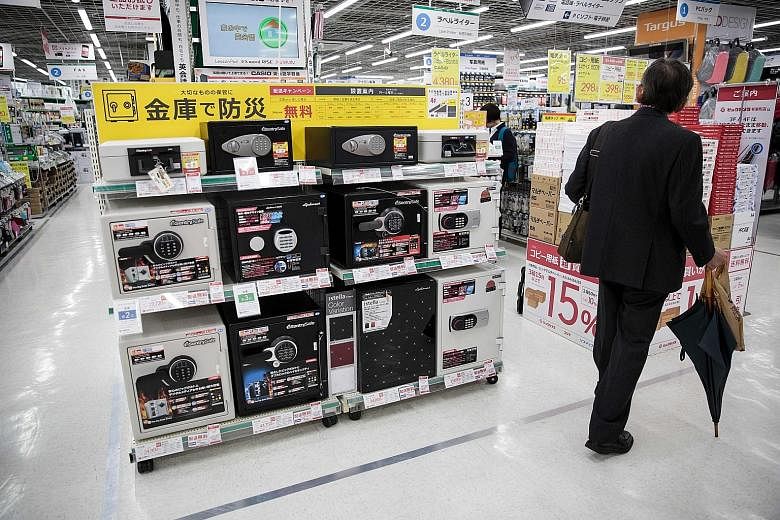TOKYO • The Tokyo stock market might be riding two-decade highs, but a growing number of Japanese, wary of negative bank interest rates, are choosing to stash their cash in the humble home safe, out of sight of eagle-eyed tax officials.
It is no secret that Japan has some of the world's biggest savers, who learn from an early age to put aside some of their hard-earned wages for a likely long retirement.
But cautious households who already put away more than half their nest-egg in cold hard yen, are increasingly bringing the cash home.
Part of the reason is a longstanding savings culture. But the Bank of Japan's move to usher in negative interest rates last year and changes to the tax code have propelled demand for alternatives to keeping money in the bank.
A negative interest rate means the average saver can literally be paying to put their money in a bank, depending on how much they shell out in fees for withdrawals and transfers while getting almost no interest on their savings.
And that has seen home safes that cost from as much as 20,000 yen (S$240) fly off store shelves, with sales surging by a fifth last year.
Demand is so strong that employees at one Tokyo outlet of Bic Camera have hauled the steel boxes from the back of the shop to a prime spot right near the escalators.
That dovetails with a recent Bank of Japan study that found investors socked away at least half of their combined 1.8 trillion yen savings in cash, while about 10 per cent was put into stocks and 19 per cent in other retirement and life insurance policies. By contrast, Americans hold just 13 per cent of their savings in cash and just over a third in equities, while Europeans fall somewhere in between.
This despite the fact that Tokyo's benchmark Nikkei 225 index has been rising since its financial crisis trough in 2009 and is now sitting at its highest levels for 21 years.
"Investing is seen by many Japanese as a whole other world," said a personal finance consultant.
Some lessons were also learnt from Japan's phenomenal post-war economic boom that ended with the collapse of a stock and real estate market bubble in the early 1990s. Years of deflation and slow growth followed, a point not lost on many risk-averse savers.
AGENCE FRANCE-PRESSE

